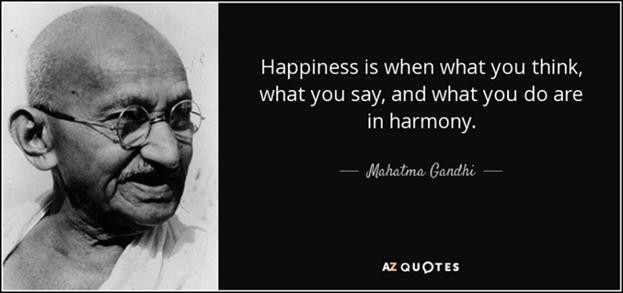Conclusion

At the heart of inner peace is one’s ability to (a) maintain an optimal balance between opposing forces in any context, (b) live in harmony with the self, others, nature and the supernatural through attunement (Wong, 2014), (c) achieve genuineness or authenticity so that one’s values, thoughts, words, and deeds are congruent with each other, in spite of the pressure of fear and temptations, and (d) develop the ability to tolerate and embrace uncertainty, disconfirmation of expectancies, ambivalent emotions and cognitive dissonance. All of these traits are predicated on living in a hostile world full of suffering and evil.
In the final analysis, we can sum it all up with the following idiom: no pain, no gain. It is better for us to get used to living with the inevitable prospect of suffering and death in order to gain mental toughness and wisdom. The valuable sources of inner peace and life balance can only be earned by going through the gates of hardships and suffering, and learning dialectical balancing (Lomas, 2016) along with the dual-system process (Wong, 2012). Even when living a meaningful life, we need to have both the proper balance between difference sources of meaning (Wong, 1998).
Life can be a beautiful painting with bright and dark colours. Life can also be a beautiful piece of music with different notes in perfect harmony. You can build a new life of peace, balance, and harmony out of shattered dreams and broken relationships by practicing the new concepts, strategies, and skills as outlined in this book.
My colleagues and I are in the process of establishing a new Research Institute of Suffering and Flourishing to explore all the new possibilities of the new science of PP 2.0 (https://www.meaning.ca/positive-psychology/).
I want to conclude this chapter by quoting Faabio & Tsusa (2018):
“Acceptance of change can be considered a resource to face adaptively the continuous changes of the 21st century in terms by offering strengths to find new balances within the person, with others and with different contexts, including the natural world.”




